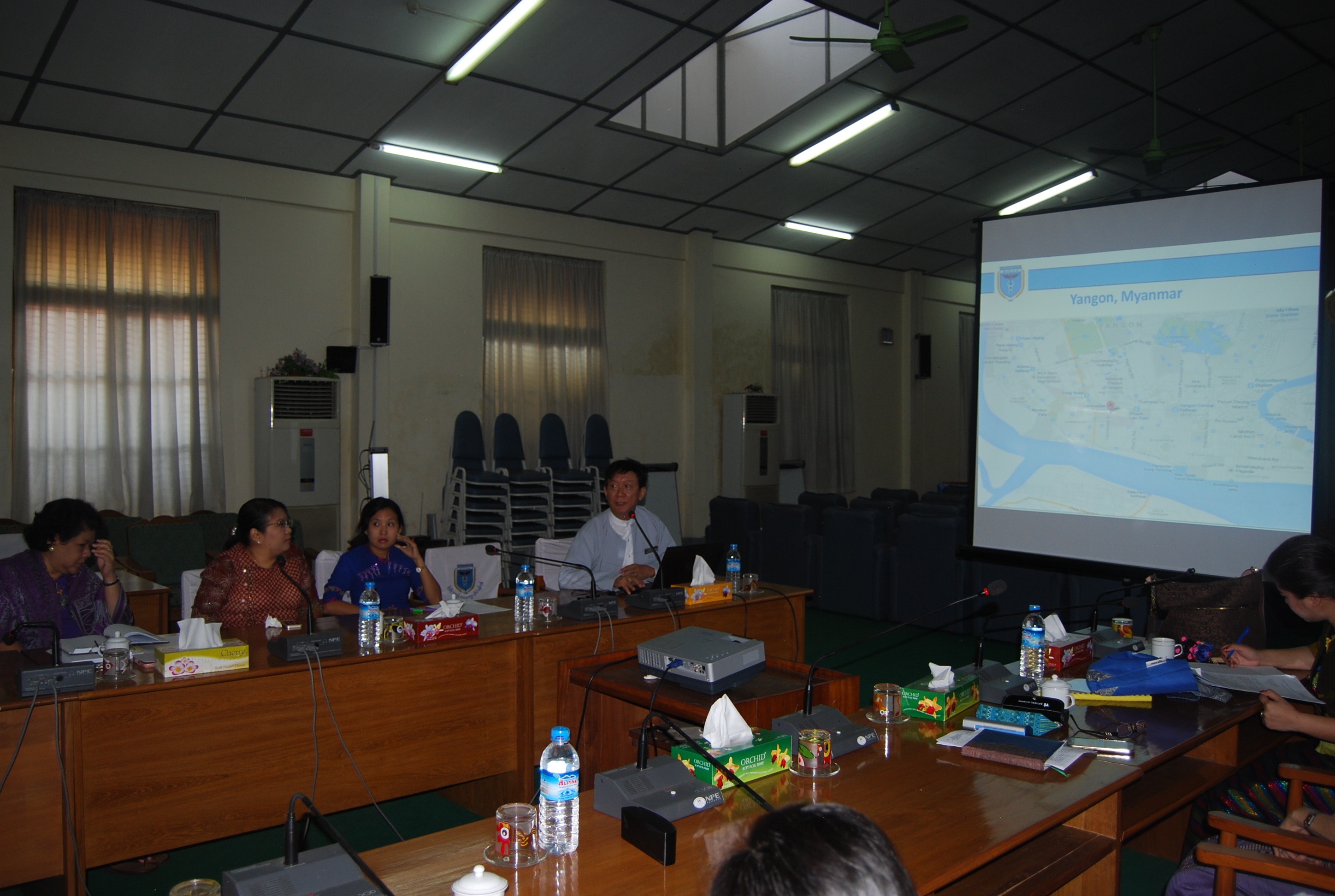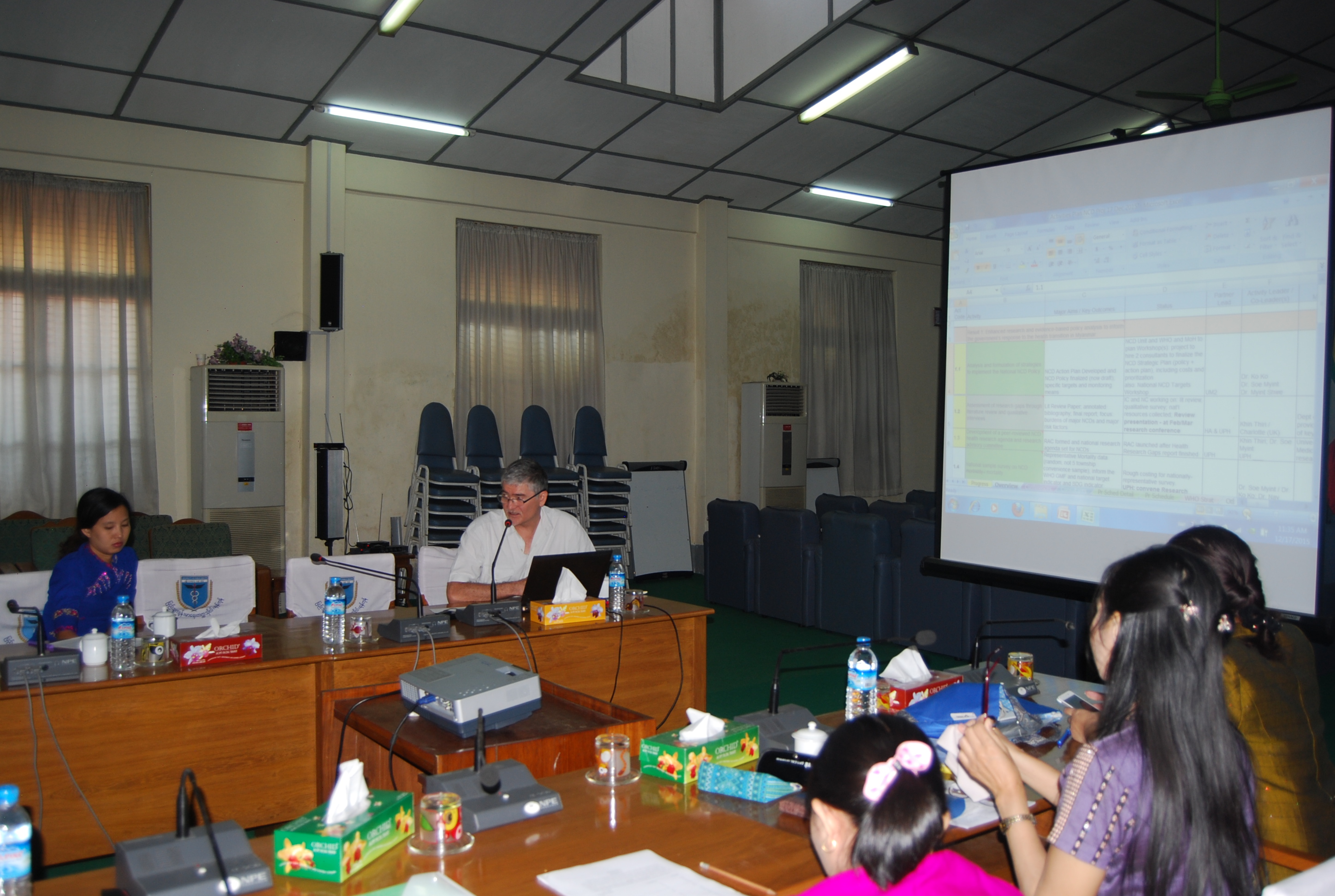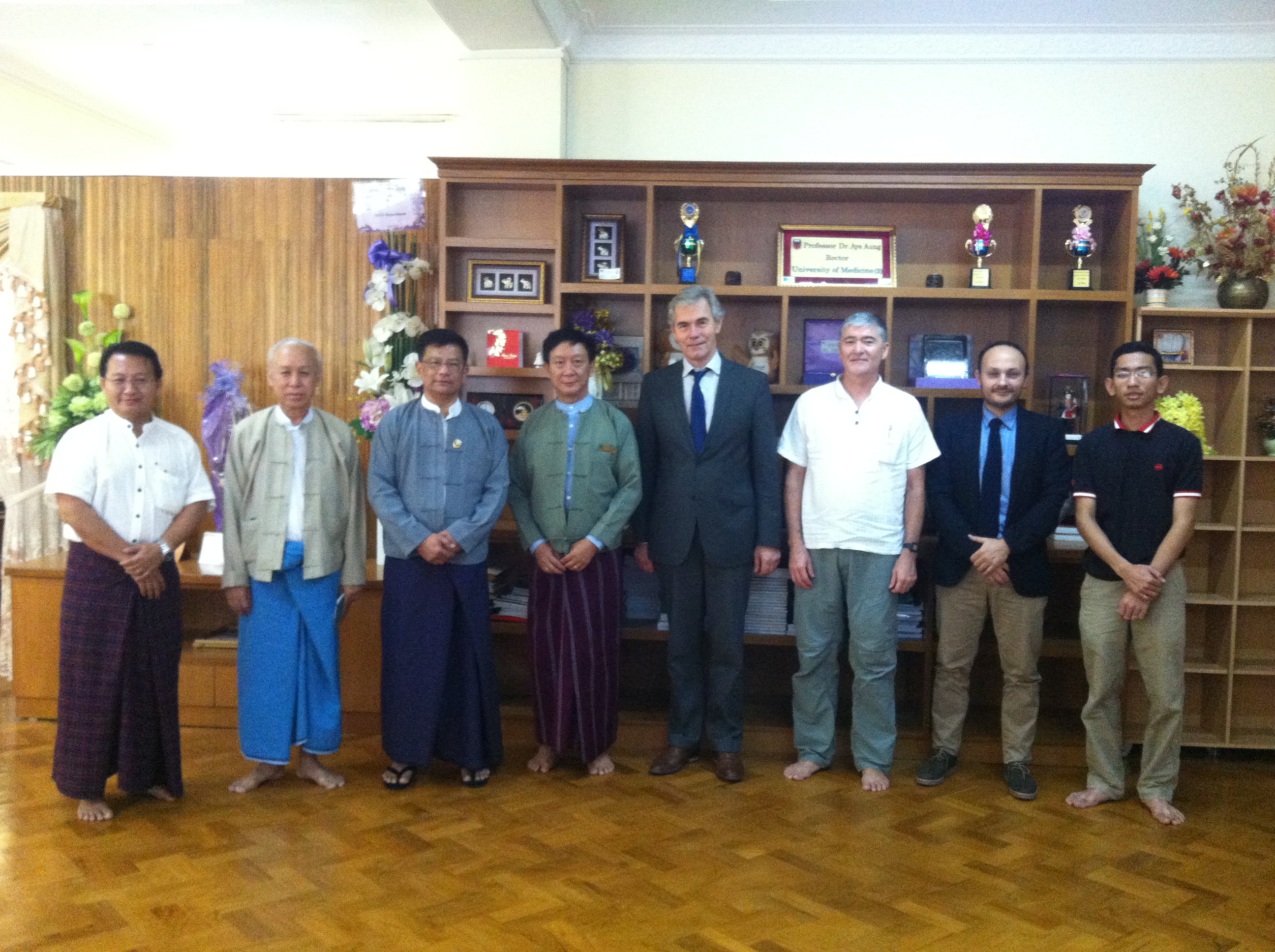Myanmar: Strengthening Public Health Capacity
Strengthening public health capacity to respond to Myanmar’s disease transition
The overall objective of the project is to contribute to the process of health reform in Myanmar so that the goals of equitable and universal healthcare can be achieved. Myanmar is undergoing a period of reform and the government is greatly expanding investment in healthcare. Myanmar’s population is ageing rapidly and the spread of non-communicable diseases (NCDs) is accelerating sharply, in line with the experience of its neighbours. The healthcare system urgently needs to anticipate the growing NCD disease burden in order for the country’s health vision to be realised.
|
Image

|
Image

|
Image

|
|
When: |
2015 - 2019 |
|
Where: |
Myanmar |
|
Who: |
Beneficiary: University of Public Health (UPH) - Myanmar; Implemented by: HelpAge International through its Myanmar Country Office in Yangon Co-applicants: Other stakeholders:
|
|
What: |
The challenge of the project and its overall objective is to address the lack of institutional and technical capacity, supported by sound evidence, which is needed to absorb and effectively channel new resources to address the growing burden of NCDs. The action will take the first systematic steps in addressing these shortcomings and provide the institutions involved in the action with the skills required; and build the evidence base and policy recommendations on NCDs which can be used to contribute to the government’s ambitious goal “to ensure universal health coverage of health services for the whole population” by 2030. The specific objective of the action is therefore to strengthen the University of Public Health (UPH) and wider health stakeholders to support evidence-based policy and improved health services, particularly in preparation for the transition towards non-communicable diseases in Myanmar. This specific objective identifies the institutions that can be assisted by this action to help address the gap described above – a stronger UPH supported by and collaborating with other health stakeholders. |
|
Activities: |
|
|
More @ |
